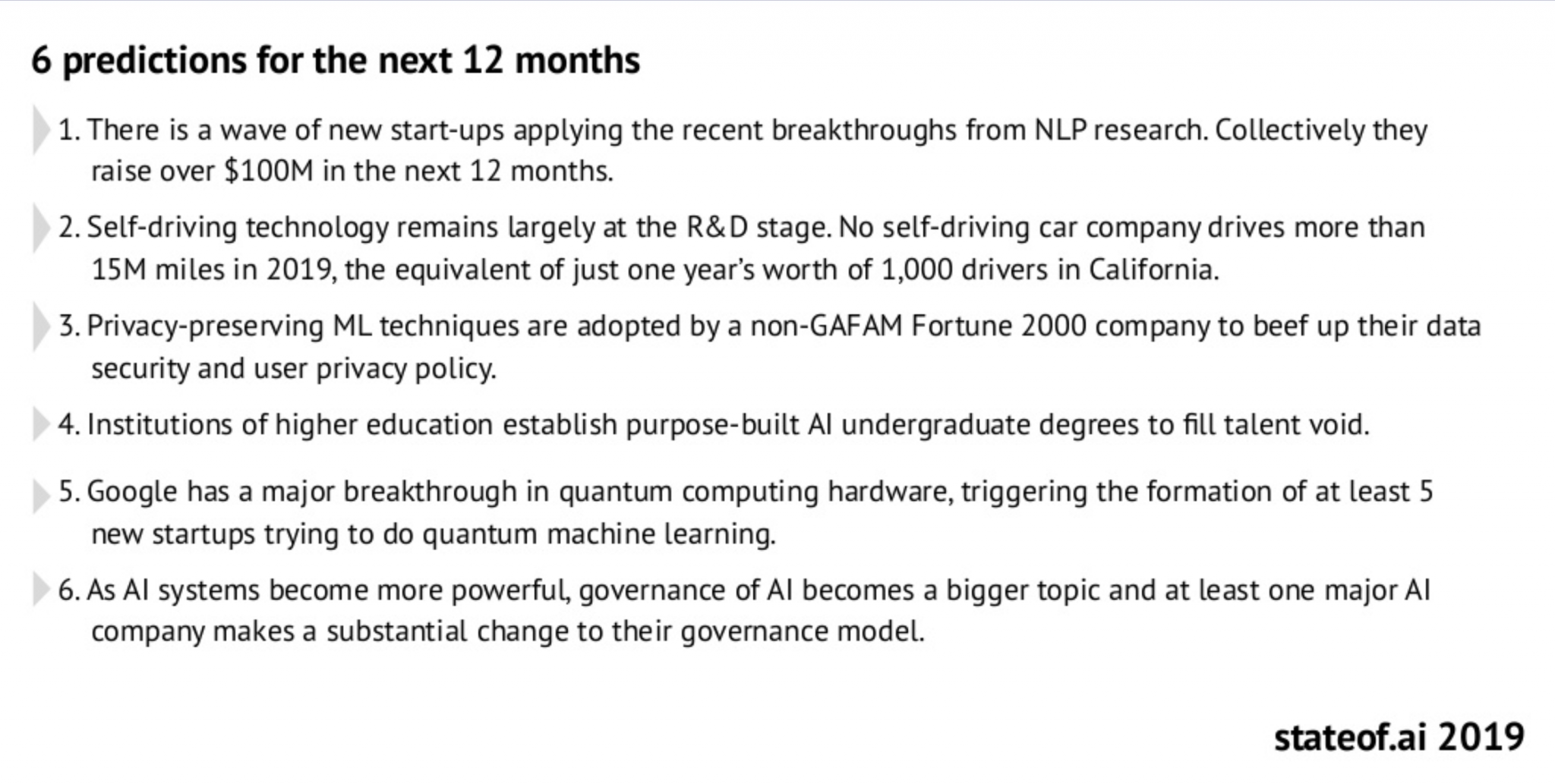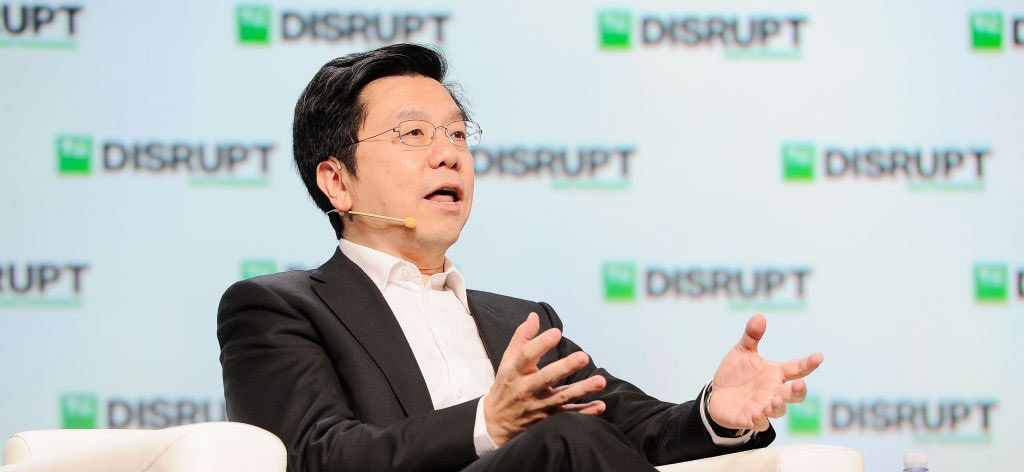AI deals are getting bigger, and there are growing concerns about whether AI is being concentrated too far into the hands of Big Tech. These are some of the findings in the second annual State of AI report, just published by Nathan Benaich and Ian Hogarth, providing a mass of interesting context and colour on the sector, even if it confirms a lot of what we already know:
- AI is white hot, and salaries are surging
- The US and China dominate investment flows
- Europe is very strong at basic research but a lot weaker at commercialising that brainpower
- The lack of diversity in the sector is shocking
- Many of the most promising startups are being swallowed up by Big Tech
The publication of the report coincided with the 5th Research and Applied AI Summit (RAAIS), including a bunch of presentations on many fascinating projects, held at Google’s HQ in London last week. “Britain looks set to be the AI R&D lab of the world,” says Benaich with encouraging optimism.
Here are some particular highlights from the report, but it is well worth flicking through it all here.
Investment into AI increases
Last year, VCs poured more than $27bn into AI startups around the world, 80% more than the year before. The US and China still account for the bulk of these money flows, but Europe is in the mix, too.
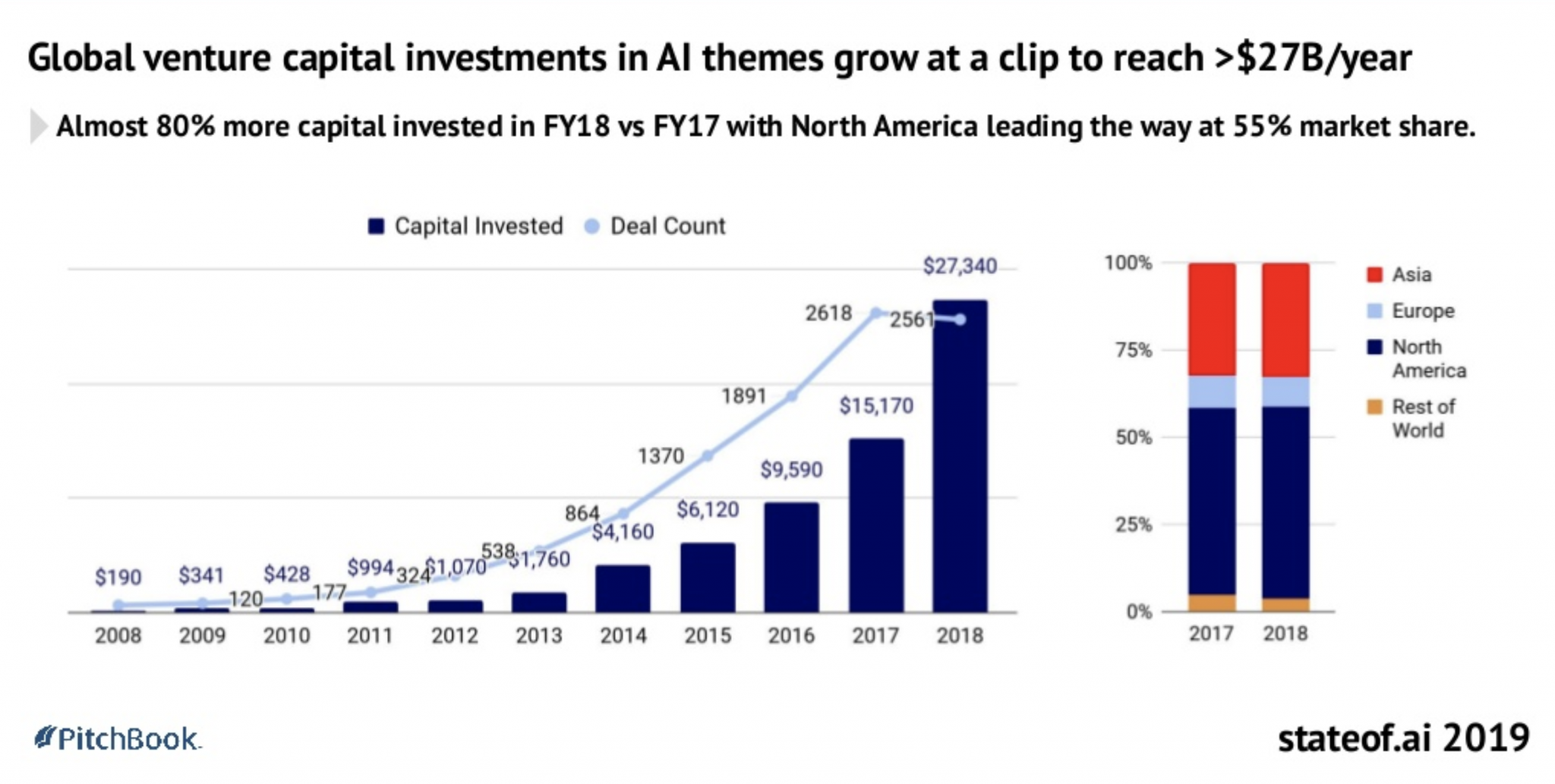
Research into AI
Europe is an intellectual powerhouse in AI and home to many leading researchers. But the report highlights how the UK, Switzerland and Canada tend to be “platform countries” importing a lot of foreign talent but also exporting a lot of locally-trained researchers abroad.
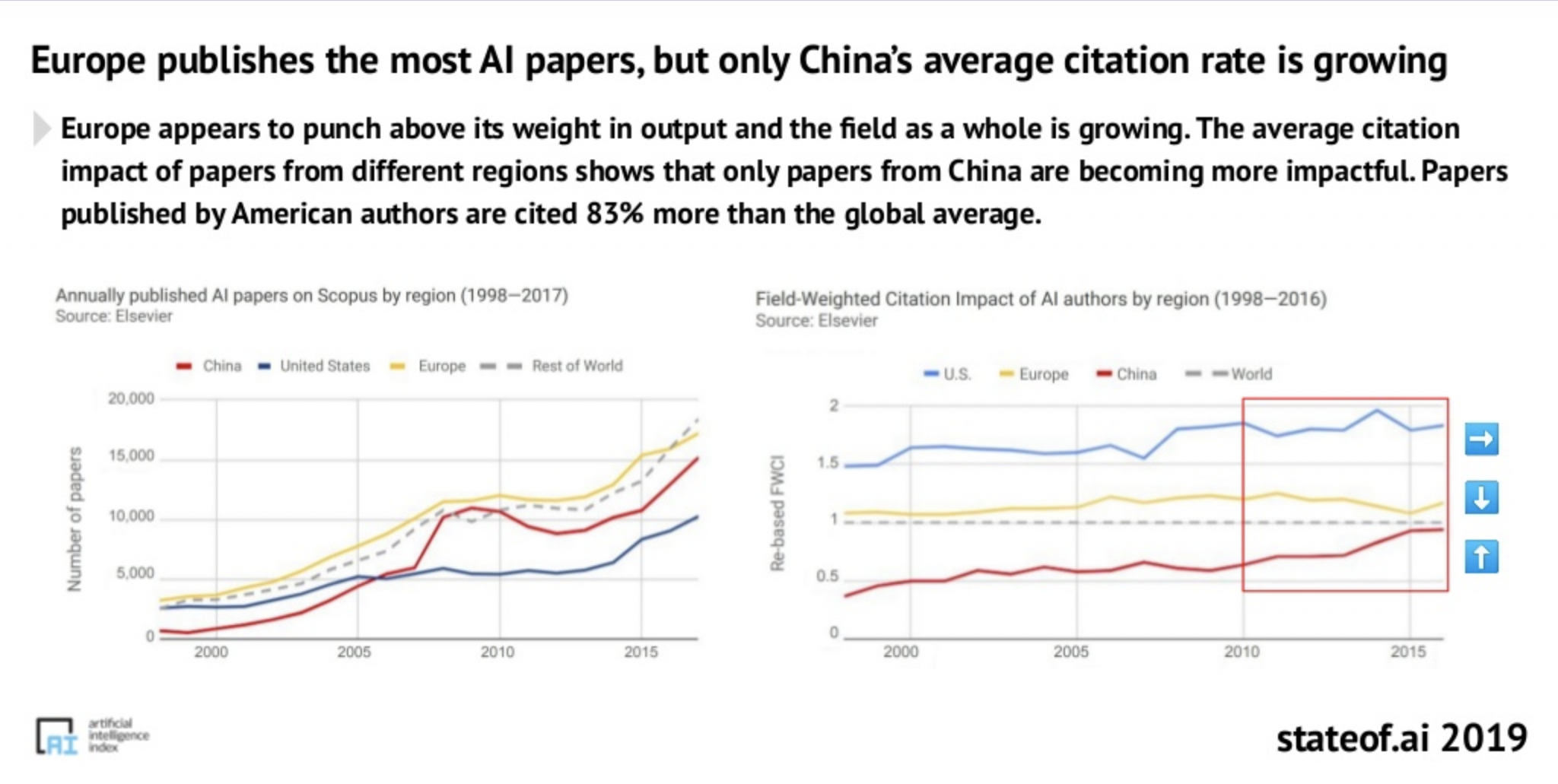
Diversity is an issue
The gender imbalance within the sector is highlighted by figures showing that 80% of AI professors are men as are 75% of university students on AI courses. We have to change that human input if we want the AI output to change.
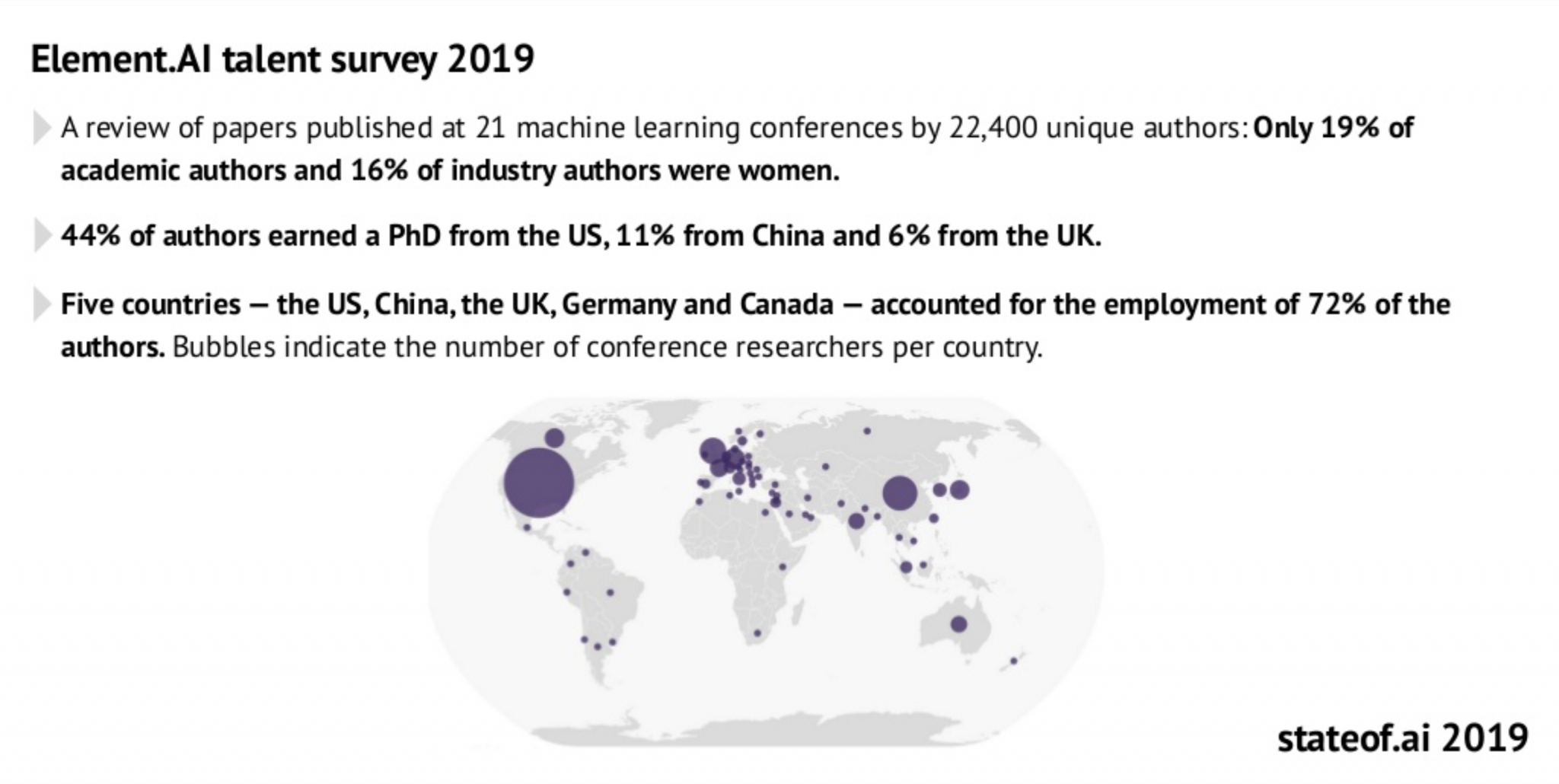
Big Tech tends to swallow up AI startups
One of the big debates about the impact of AI is whether it will lead to a concentration of corporate power or its democratisation of economic opportunity. So long as regulators allow Big Tech to swallow up the most promising startups, it looks like the former. A big strategic question for Britain - and Europe - is whether it allows this trend to continue.
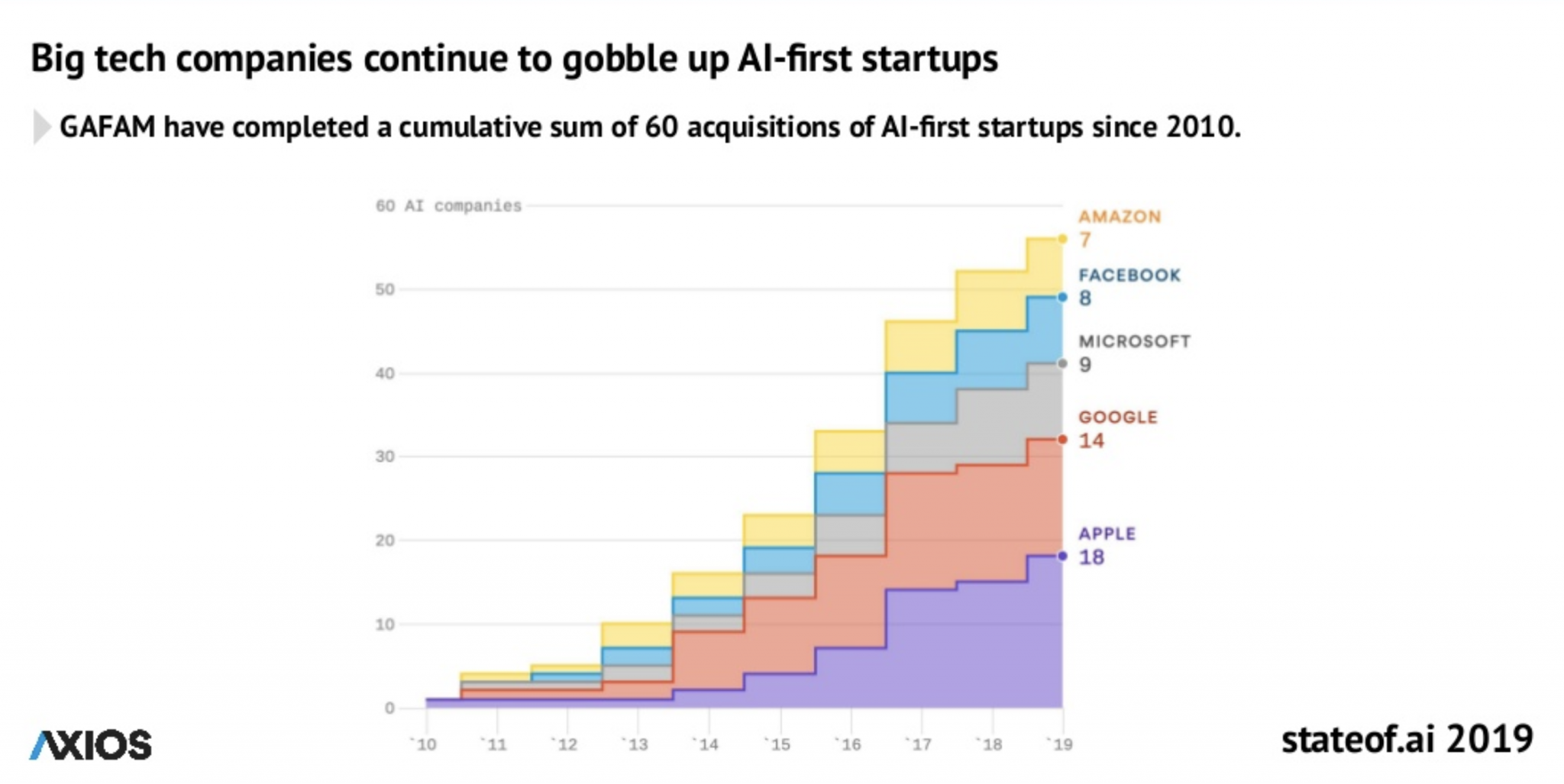
What does the future hold for AI?
Finally, the authors make some interesting predictions for the next year: bullish on NLP; bearish on self-driving cars; and big on privacy and governance.
